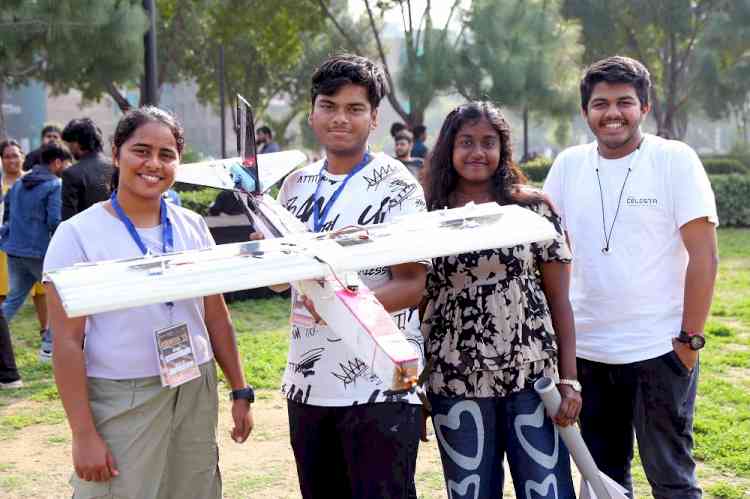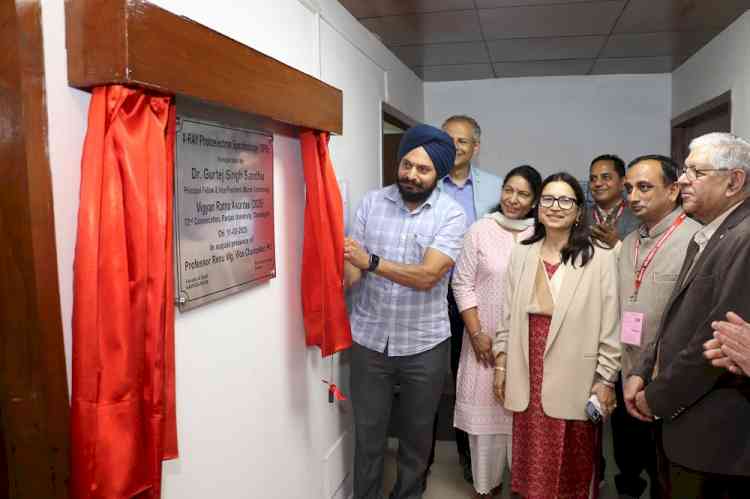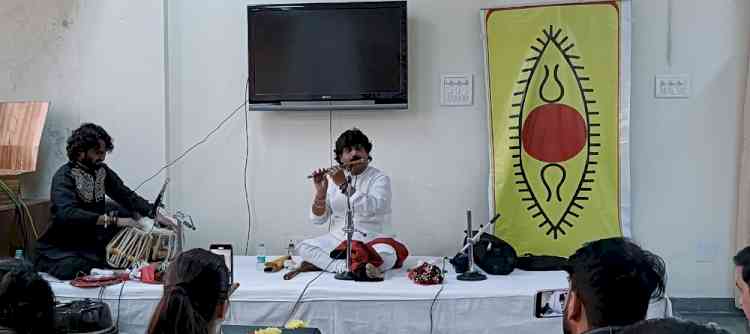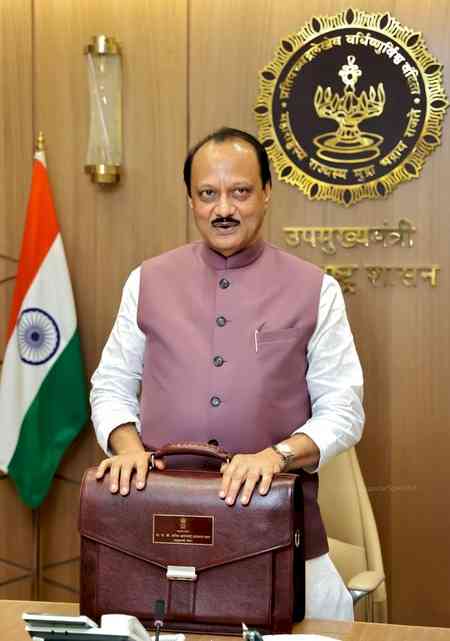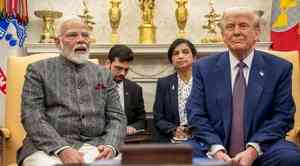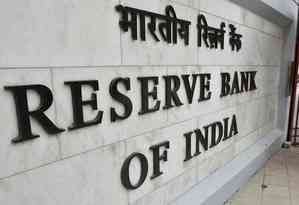Break conspiracy of silence to talk and acknowledge environmental challenges and climate change at homes
Aver experts at Amity University during a webinar on “Sustainable Future and Climate Change”

A webinar on “Sustainable Future and Climate Change” was organized by Amity Institute of Environmental Sciences (AIES) & Amity Institute of Environmental Toxicology, Safety and Management (AIETSM), under the aegis of "Global Research Hub", Amity Long Island, New York. An MoU between Amity Universities and NIDM was also signed post the deliberations.
Dr. Ashok Chauhan, Founder President, RBEF & Chairman AKC Group of Companies stated the importance of climate change and the need for creating a sustainable future. He also called for making a network of experts on sustainability & climate change to deliberate in creating an actionable plan of action. He added that the Global Research Hub will pave the way to bring synergy into this mission.
Chief Guest for the evening Mr. Satya S Tripathi, Assistant Secretary-General and Head, United Nations talked about the global climatic challenges and how it’s the result of human behaviour. He stated that the sense of urgency is missing when it comes to actions against climate change. He further added that Covid-19 is one of the many challenges and not the last of the pandemics that humans are likely to face in the coming future. He said that humanity exists in a fine balance and there is a serious need to recognize that. People don’t understand the challenge in its entirety and called upon the professors to make students understand this. He asked for changing people’s behaviour and be responsible as human beings & seek solutions through collective wisdom. Mr. Tripathi stressed on the need for acknowledging, talking about environmental challenges and climate change at homes & break the conspiracy of silence. He talked about The UN Decade on Ecosystem Restoration 2021-2030 that is designed as the global movement that can end poverty, hunger, malnutrition, gender inequality and the degradation of ecosystems by harnessing the power of nature and local communities. He averred that there are numerous possibilities to address the challenge in this field.
Mr. Jigmet Takpa, IFS, Joint Secretary, Ministry of Environment, Forest and Climate Change (MOEFCC) shared that the primary cause of climate change is not often seen and talked about desertification. He averred that only twenty per cent of the planet that is habitable and 1 out of every 4 hectares of productive land has become unusable. He stressed on the need for protecting every piece of land as it is a scarce resource. Mr. Takpa further stated that planetary boundaries are being surpassed and called for a need to plan the management & use of land as an ecosystem across the world is degrading. Without better adaptation strategy, resilience and responsibly managing the land, food security, land value, human peace & security is threatened. He called for shaping the future of the land resources with new global land agenda as land is an important accelerator to achieve all the SDG goals.
Maj. Gen. M.K. Bindal, Executive Director, NIDM shared his views on ‘Adaptation Gap Report of 2020’ and how the link between climate change & sustainable development is very strong. He stated that key environmental challenges have become sharper in the last decade. He further added that climate change is impacting natural ecosystem with agriculture slated to face maximum impact in the country due to this, causing serious concerns of food & water security. He averred that India is working on its national adaptation plan & called for making the community resilient. He averred that the MoU will be a starting point for future collaborations in the country and across the globe.
Dr. Vijeta Rattani, Technical Expert, Climate Change Group, GIZ shared that climate impact is increasing in intensity and poor countries are affected more with climate change and its effects. India is the fifth most climate impact risk country according to German research but also a sincere player of climate change. She stated that the window of development is small, but the window of development is higher to tackle climate change.
Prof. Nir Krakauer, Professor, City University, NY talked about humid heat as a worsening climate hazard. He further averred that climate change is an issue both in rural areas as well as urban areas.
Dr. Ajay Jha, Founder and CEO, Youth Lab and InnoP shared his views on why it is important for health officials to talk about climate change in the present scenario. Also, how climate change and global health policy are treated as separate issues by the public and the media and there is a need to adjust that thought process.
Prof. (Dr.) Tanu Jindal, Gp. Addl. Pro Vice-Chancellor (R&D) and Director-AIES & AIETSM welcomed the guests and panelists to the discussion. She also elaborated on the various programs and initiatives of Amity University in the field of climate change. She shared that climate change is the major issue of present times and entire humanity across the globe is at a defining moment. From shifting weather patterns that threaten food production, to rising sea levels that increase the risk of catastrophic flooding, the impact of climate change is global in scope and unprecedented in scale. Climate change is more than just one of the 17 SDGs specified in the 2030 Agenda for Sustainable Development. It is a threat multiplier with the potential to worsen some of humanity’s greatest challenges including health, poverty, and hunger.
Also present during the webinar were Prof. (Dr.) W. Selvamurthy, President, Amity Science, Technology & Innovation Foundation (ASTIF); Dr. Savita Arora, VP, Strategy & Operation, Amity University Long Island; Dr. Gurinder Singh, Group Vice Chancellor, Amity Universities; Dr. D.K. Bandopadhyay, Chairman, ALSN, staff, faculty members and thousands of students from across the globe.


 cityairnews
cityairnews 
